-
Table of Contents
The Impact of Limited-Edition Drops on Pop Culture Sales
Why Limited-Edition Drops Are Driving Pop Culture Sales!
In today’s fast-paced world, where trends come and go in the blink of an eye, limited-edition drops have emerged as a powerful force driving pop culture sales. These exclusive releases, often in collaboration with popular brands or celebrities, create a sense of urgency and excitement among consumers, leading to a surge in demand and ultimately boosting sales.
One of the key reasons why limited-edition drops have become so influential is their ability to tap into the psychology of scarcity. When something is only available for a short period or in limited quantities, it automatically becomes more desirable. People have a natural inclination to want what they can’t easily have, and this principle is exploited to great effect by brands and marketers.
The concept of limited-edition drops is not new, but it has gained significant traction in recent years, particularly in the realm of streetwear and sneaker culture. Brands like Nike, Adidas, and Supreme have mastered the art of creating hype around their limited releases, often resulting in long lines outside stores and frenzied online shopping experiences. This heightened demand drives up prices in the secondary market, where resellers can make a handsome profit by capitalizing on the scarcity of these items.
Celebrities have also jumped on the limited-edition bandwagon, leveraging their star power to create buzz and drive sales. Collaborations between musicians, actors, and fashion brands have become increasingly common, with artists like Kanye West, Rihanna, and Travis Scott lending their creative vision to limited-edition drops. Fans are eager to get their hands on these exclusive pieces, not only as a way to support their favorite celebrities but also to feel a sense of connection and belonging to a larger cultural movement.
Limited-edition drops have also found success beyond the realm of fashion and music. In the world of collectibles, companies like Funko and Hasbro have capitalized on the nostalgia factor by releasing limited-edition versions of popular toys and figurines. These limited runs tap into the emotional attachment that people have to their favorite childhood characters, creating a sense of urgency to own a piece of their cherished memories.
The impact of limited-edition drops on pop culture sales extends beyond the immediate financial gains. These exclusive releases generate significant buzz and media coverage, effectively serving as free advertising for the brands involved. The hype surrounding a limited-edition drop creates a sense of anticipation and excitement, leading to increased brand visibility and awareness. This heightened exposure can have a lasting impact on a brand’s reputation and desirability, ultimately driving long-term sales growth.
However, it is important to note that the success of limited-edition drops is not guaranteed. Brands must carefully balance exclusivity with accessibility to ensure that they do not alienate their core customer base. While scarcity can create demand, it can also lead to frustration and disappointment if consumers are unable to secure the coveted item. Brands must strike a delicate balance between creating hype and meeting customer expectations to maintain their credibility and loyalty.
In conclusion, limited-edition drops have emerged as a powerful force driving pop culture sales. By tapping into the psychology of scarcity and leveraging the influence of celebrities, brands have created a sense of urgency and excitement that fuels demand and boosts sales. These exclusive releases not only generate immediate financial gains but also serve as a powerful marketing tool, increasing brand visibility and desirability. However, brands must tread carefully to ensure that they strike the right balance between exclusivity and accessibility to maintain their customer base and long-term success.
How Limited-Edition Drops Create FOMO and Drive Sales
Why Limited-Edition Drops Are Driving Pop Culture Sales!
In today’s fast-paced and ever-changing world, pop culture has become a driving force in consumer behavior. From fashion to technology, people are constantly seeking the latest trends and exclusive items that set them apart from the crowd. This desire for uniqueness and exclusivity has given rise to a phenomenon known as limited-edition drops, which have proven to be incredibly successful in driving sales and creating a sense of urgency among consumers.
Limited-edition drops are essentially products or collections that are released in limited quantities for a short period of time. These drops can range from clothing collaborations between high-end designers and popular brands to limited-edition sneakers or even exclusive video game releases. The key element that sets these drops apart is their scarcity, creating a fear of missing out (FOMO) among consumers.
The concept of FOMO is not new, but limited-edition drops have taken it to a whole new level. By creating a sense of urgency and exclusivity, brands are able to tap into consumers’ fear of missing out on the latest trends and unique products. This fear drives consumers to act quickly and make a purchase before the item sells out, resulting in a surge in sales.
One of the reasons limited-edition drops are so successful is the element of surprise. Brands often keep the details of these drops under wraps until the last minute, creating anticipation and excitement among consumers. This element of surprise adds to the overall appeal of the product, making it even more desirable and increasing the likelihood of a purchase.
Furthermore, limited-edition drops often come with a story or narrative that resonates with consumers. Brands understand the power of storytelling and use it to create a connection between the product and the consumer. Whether it’s a collaboration with a beloved artist or a product inspired by a cultural moment, these drops tap into consumers’ emotions and make them feel a part of something bigger.
Social media also plays a significant role in the success of limited-edition drops. Platforms like Instagram and Twitter have become the go-to sources for information and updates on these drops. Brands leverage the power of social media to create buzz and generate excitement around their limited-edition releases. Influencers and celebrities are often enlisted to promote these drops, further amplifying the hype and driving sales.
The scarcity of limited-edition drops also creates a secondary market where resellers can profit from the high demand. This secondary market, often referred to as the “hype market,” sees resellers purchasing limited-edition items and reselling them at a higher price. This phenomenon further fuels the FOMO among consumers, as they not only fear missing out on the initial drop but also on the opportunity to purchase the item at a later date.
In conclusion, limited-edition drops have become a powerful tool in driving pop culture sales. By creating a sense of urgency, exclusivity, and FOMO, brands are able to tap into consumers’ desire for uniqueness and drive sales. The element of surprise, storytelling, and social media all contribute to the success of these drops. As long as consumers continue to seek out the latest trends and exclusive products, limited-edition drops will remain a driving force in pop culture sales.
The Psychology Behind Limited-Edition Drops and Consumer Behavior
Why Limited-Edition Drops Are Driving Pop Culture Sales!
In today’s fast-paced and ever-changing world, pop culture has become an integral part of our lives. From music and fashion to art and technology, pop culture influences our choices and shapes our identities. One phenomenon that has gained significant traction in recent years is the limited-edition drop. These exclusive releases, often in the form of clothing, sneakers, or collectibles, have captivated consumers and driven sales to unprecedented heights. But what is the psychology behind limited-edition drops, and why do they have such a profound impact on consumer behavior?
One key factor that contributes to the allure of limited-edition drops is scarcity. As humans, we are wired to desire things that are rare and hard to obtain. Limited-edition drops tap into this primal instinct, creating a sense of urgency and exclusivity. When consumers know that there are only a limited number of items available, they feel a heightened sense of excitement and motivation to secure their piece of the cultural zeitgeist. This scarcity mindset triggers a fear of missing out (FOMO), driving consumers to act quickly and make a purchase before it’s too late.
Another psychological aspect at play is the concept of social proof. Limited-edition drops often generate a buzz and create a sense of community among enthusiasts. When consumers see others clamoring to get their hands on these exclusive items, it creates a social validation that reinforces the desirability of the product. People want to be part of the in-crowd, and owning a limited-edition item becomes a symbol of status and belonging. This desire for social acceptance fuels consumer behavior, as individuals strive to align themselves with the latest trends and be seen as tastemakers.
Furthermore, limited-edition drops tap into our innate need for self-expression. In a world where individuality is highly valued, owning a unique and exclusive item allows consumers to showcase their personal style and identity. Limited-edition drops often feature collaborations with influential artists, musicians, or designers, adding an extra layer of cultural significance. By owning these items, consumers feel a sense of connection to their favorite artists or brands, allowing them to express their admiration and support in a tangible way. This emotional connection fosters a deep loyalty and commitment to the product, driving repeat purchases and brand advocacy.
The psychology behind limited-edition drops also ties into the concept of gamification. Brands often employ strategies such as raffles, lotteries, or timed releases to create a sense of competition and excitement. This gamified approach taps into our natural inclination for challenge and reward, triggering a dopamine rush when consumers successfully secure a limited-edition item. The element of chance and unpredictability adds an element of thrill and adventure to the purchasing process, making it more than just a transaction but an experience in itself.
In conclusion, limited-edition drops have become a driving force in pop culture sales due to the psychology behind consumer behavior. The scarcity mindset, social proof, self-expression, and gamification all play a significant role in creating a sense of urgency, desirability, and emotional connection. As long as pop culture continues to shape our identities and influence our choices, limited-edition drops will remain a powerful tool for brands to engage consumers and drive sales. So, the next time you find yourself caught up in the frenzy of a limited-edition drop, remember that it’s not just about the product itself but the psychological factors that make it so irresistible.

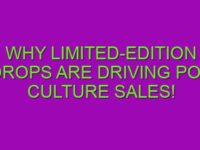
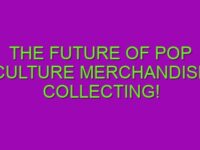




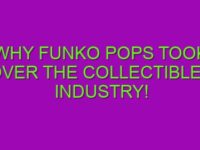
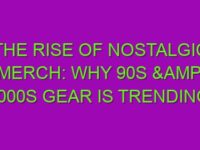
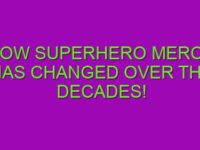
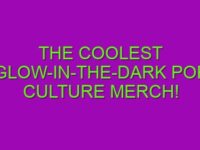


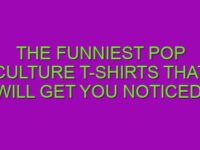

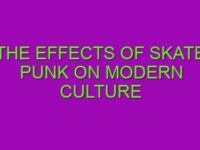
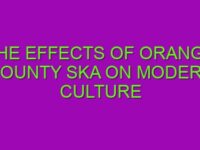


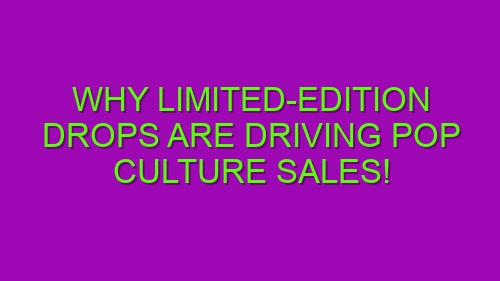
0 Comments